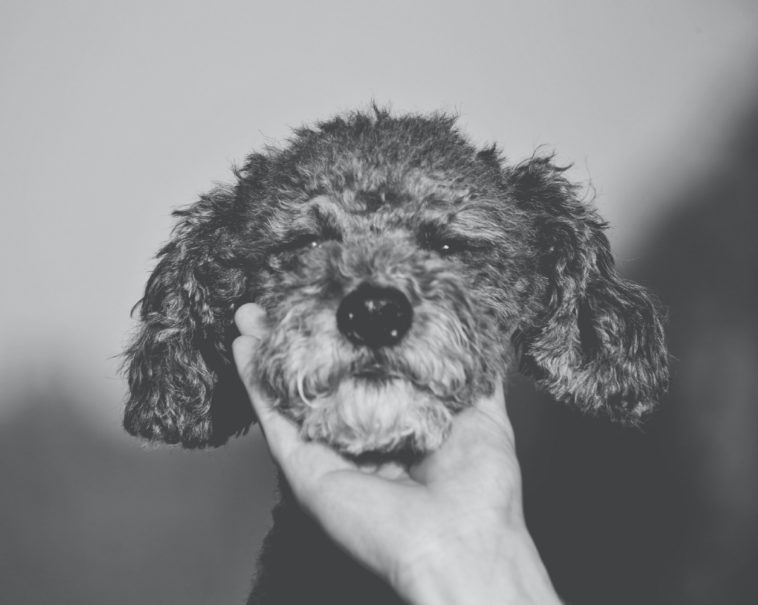h2>Dating : How to Care For Your Ageing Dog
Education
A Lifelong promise to my dearest friend
Those eyes.
The gaze pierced straight into the deepest, coldest part of my soul that I never thought could be filled with warmth. I was welcomed with constant licking and tail wagging after a long day at work; one of the many perks of going home to your furry little friend.
That was 3 years ago.
Caleb is 16 now, and while he still tries his best to make me feel at home, I would much rather enter the house stealthily, wash up, get changed, before quietly laying down beside him; still unaware of my presence. Gone were the days where he could hear the lightest footsteps.
It happened all too quickly, as though a virus struck him; first it was the weakening legs, then came the eyes, and now the hearing too. Nothing pains me more than seeing him struggle and adjust to his newfound, old body.
This is not an exclusive experience of mine, others taking care of ageing dogs will be facing similar issues and experiencing identical pains. Yet somehow, I have never met a dog owner who would bail on their companions when the going gets tough. Just because you are reading this, it is likely that you wouldn’t too.
I’m no expert when it comes to caregiving for dogs, but this is what I’ll share with you based on personal experiences, albeit painful ones.
To care for an ageing dog, you have to first identify the signs of ageing. On hindsight, there were some clear symptoms that I have subconsciously chosen to ignore.
Does your dog react to its toys the same he did before? Did he lose his appetite or change his meal routines? Is he reacting to his name, or do you have to repeat yourself before he registers it?
These small changes are easy to gloss over, and they might not indicate a serious condition at first. But they are surely telltale signs which mark the start of the ageing process. Therefore, pay close attention to your dog and proactively identify these tiny changes in his lifestyle.
One of the best tips I can give you will be to act quickly once a symptom is discovered; bring him to the vet. This seems like a piece of straightforward advice that most dog owners (including myself) are guilty of neglecting.
Acting quickly, for a lack of a better expression, means life and death. Take Caleb for an example, there were signs of sight loss in the early stages such as bumping into table legs, and not knowing where his food bowl was. However, all these were glossed over, until it became apparent that something was indeed seriously wrong; he started barking at me as though I was an intruder.
The vet told us that he lost 80% of his eyesight, and is overcompensating with his sense of smell and hearing. Besides prescribing medications to slow down the process of vision degeneration, the vet was pretty much helpless.
Hence, act quickly and decisively, there could have been a few extra years of sunset chasing with your dog.
While there isn’t much you can do for your dog’s declining health (apart from slowing it down), it is helpful to change your environment to better suit his needs. Nothing is more reassuring than giving him the confidence to adapt slowly to his own home.
For example, because of Caleb’s weakening legs, I have added 2 more spots for his water and food bowls. This will allow him to eat or drink in the living room, bedroom and kitchen, wherever he may be. Also, since losing most of his eyesight, he will be bumping around and knocking onto things, this spells trouble if your furniture has sharp edges. If changing your furniture altogether is too drastic, it will be good to at least tape the corners with rubber paddings to reduce the impact.
The above are just 2 of the many things that I have changed in my living environment, and the bottom line is; Caleb should feel safe in his own home.
Don’t go out of the way to show the love that you normally wouldn’t, in fact, be subtle about it, at least in front of your dog.
The exponential increase in attention and affection may cause unnecessary stress to him, and in turn affect him negatively. That was what happened to Caleb when I showered him with hugs right after finding out about his vision. There were studies to show that dogs have increased stress levels after being hugged for prolonged periods by their owners.
It isn’t wrong to feel an attachment to your dog, especially when it’s frail. However, show your affection in a way that is comfortable and acceptable to him, bearing in mind his age and health.


